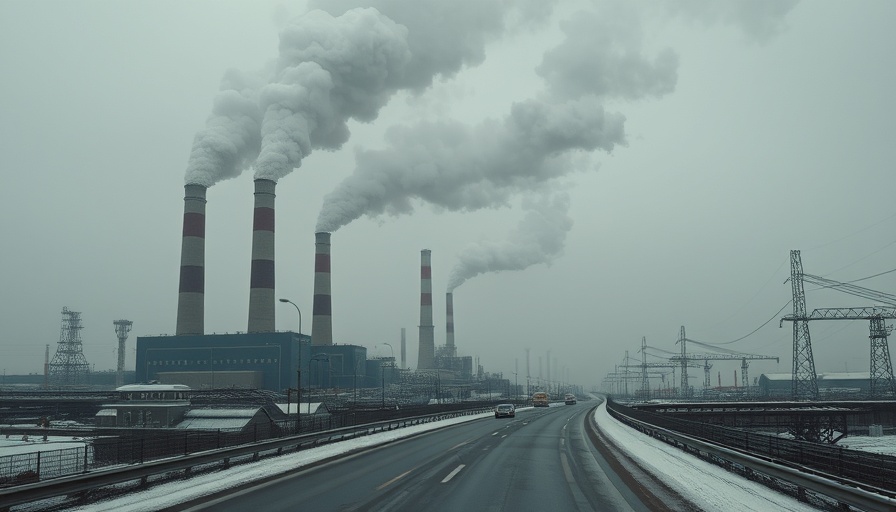
Risks Companies Face Without a Climate Plan
In today's world, companies risk everything by neglecting to create a solid climate plan that aligns with the Paris Agreement. Recent legal rulings, like those from the International Court of Justice, serve as a wake-up call. Milieudefensie has reached out to 28 major polluters, urging them to reassess their climate commitments.
The Need for Urgent Action
Donald Pols, director of Milieudefensie, emphasizes the urgent need for companies to act swiftly, stating, "Large firms bear significant risks if they fail to reduce their emissions quickly. Their inaction endangers not only the planet but their own futures as well." It's clear that the stakes are high; companies that falter may contribute to an untenable situation for both the environment and their business sustainability.
Legal Precedents Highlight the Stakes
The letter sent by Milieudefensie references critical instances such as the German Supreme Court's ruling, which affirms that companies can be held responsible for their individual contributions to climate harm. This precedent could lead to payouts in the billions, adding a financial dimension to the already pressing ethical responsibility firms carry. Notably, the international legal landscape is changing as companies, especially those in high-emission sectors, face increased scrutiny.
Big Polluters Under Increasing Scrutiny
Climate lawyer Roger Cox points out, “These legal decisions underline the public's right to protection from the climate crisis consequences. Corporations, particularly major polluters, face growing scrutiny from regulators and the public; this scrutiny necessitates swift improvements in their climate strategies.” Such statements indicate a shift towards greater accountability for corporations amidst a backdrop of evolving climate regulations.
Demands for Climate Plans: The 30 September Deadline
Milieudefensie has set a crucial deadline for these companies, requiring annual climate plans to be submitted by September 30. These plans will be scrutinized by NewClimate Institute, where firms that exhibit a commitment to reducing CO2 emissions by at least 48% by 2030 will be recognized. This process culminates in the creation of the Climate Crisis Index, a ranking system that reflects companies’ adherence to their climate commitments.
The Outcomes of the Previous Climate Crisis Index
In its 2022 publication, the first Climate Crisis Index revealed a troubling trend: the climate commitments from all assessed companies fell short. As the new deadline approaches, businesses must critically evaluate their strategies, understanding that the implications of their decisions are not just ethical; they also bear instrumental weight for their business longevity and public reputation.
Taking Concrete Steps Forward
It is essential for companies to realize that robust climate strategies can also deliver financial benefits. By investing in sustainable practices, they not only comply with regulations but can also attract a more environmentally-conscious consumer base. In this era of heightened environmental awareness, taking action can be a competitive advantage.
Conclusion: The Path to Sustainability
The intersection of legal duty, social responsibility, and corporate survival is crucial for businesses today. Companies must engage in proactive measures to ensure their climate plans are not just a regulatory checkbox but a cornerstone of their operational strategy. The upcoming results from the Climate Crisis Index will inform stakeholders about the current corporate landscape regarding climate action. By joining the dialogue and taking action now, businesses can position themselves for a sustainable future.
**Call to Action:** Stakeholders and consumers alike must emphasize the importance of corporate climate responsibility. If you care about the future of our planet, demand transparency and accountability from the companies you support. Collective action can drive significant changes in company policies.
 Rij toevoegen
Rij toevoegen






Write A Comment